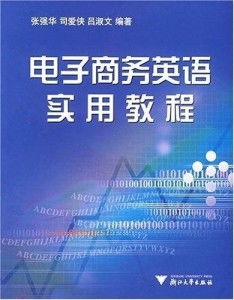电子商务专业的英文为"Electronic Commerce (EC)"或"E-commerce"。这个专业主要涉及利用互联网技术进行商品和服务的在线交易、支付以及物流配送等各个环节,培养具备电子商务理论知识和实践能力的专业人才。
In recent years, with the rapid advancement of digital technology and the increasing global interconnectedness, e-commerce has emerged as a pivotal force in the world economy. This paper explores the significance of incorporating e-commerce into undergraduate programs in commerce, focusing on how this subject contributes to students' professional development and prepares them for the competitive job market. By *** yzing the curriculum and practical applications, this study aims to provide insights for educators, policymakers, and industry stakeholders interested in enhancing their understanding of the role that e-commerce plays in commerce education.
Introduction
E-commerce, or electronic commerce, represents the buying and selling of goods and services over the internet. As consumers increasingly shift their purchasing habits online, the importance of e-commerce skills has become more pronounced. In response to this growing trend, many universities have begun integrating e-commerce into their commerce curricula, aiming to equip students with the necessary knowledge and skills to succeed in this dynamic field. This paper delves into the rationale behind this educational approach, exploring its potential benefits and addressing challenges that may arise.
The Rationale Behind Incorporating E-commerce into Commerce Curricula
1、Enhancing Employability: Graduates who have received comprehensive training in e-commerce possess valuable skills that are highly sought after by employers. These skills include proficiency in online marketing strategies, data *** ysis, digital payment systems, and logistics management. By including e-commerce in their education, students are better positioned to secure competitive positions in both traditional and emerging sectors of commerce.
2、Adapting to Technological Advancements: The landscape of commerce is constantly evolving, driven by technological innovations. Incorporating e-commerce into the curriculum ensures that students stay abreast of the latest developments, enabling them to adapt to new trends and technologies efficiently. This adaptability is crucial in maintaining relevance and competitiveness in the job market.
3、Developing Critical Thinking Skills: Understanding e-commerce requires students to think critically about various aspects of business operations. They must *** yze market trends, assess consumer behavior, and evaluate the impact of digital platforms on traditional retail models. Such *** ytical skills are invaluable in any managerial position, fostering a well-rounded professional.

4、Preparing Students for Global Business: With globalization, international trade has become an integral part of commerce. E-commerce plays a significant role in facilitating cross-border transactions. Including e-commerce in the curriculum equips students with the knowledge and tools needed to navigate the complexities of global markets, enhancing their ability to operate successfully across borders.
Practical Applications and Integration into the Curriculum
1、Course Design: Universities can design courses that cover a broad range of topics related to e-commerce, such as online marketing, e-commerce platforms, payment systems, and supply chain management. These courses should be interactive, incorporating case studies, guest lectures from industry experts, and hands-on projects to ensure students gain practical experience.
2、Real-World Projects: Assigning real-world projects allows students to apply theoretical concepts to practical scenarios. For example, they could be tasked with creating an e-commerce website, *** yzing sales data, or designing a marketing campaign. Such assignments not only reinforce learning but also prepare students for real-life challenges they might encounter in their future careers.
3、Industry Partnerships: Collaborating with e-commerce companies can offer valuable resources and opportunities for students. Industry partners can provide internships, mentorship programs, and access to cutting-edge technologies. These partnerships create a conducive environment for students to gain insights into current industry practices and develop relationships that can prove beneficial in their professional journey.
Challenges and Solutions
While there are numerous benefits to incorporating e-commerce into commerce curricula, several challenges need to be addressed:
1、Skill Gap: There is often a discrepancy between what students learn in academia and what employers require. To bridge this gap, institutions can partner with industry leaders to update course content regularly and incorporate industry-specific requirements.
2、Technological Overlap: The rapid evolution of e-commerce necessitates continuous updates to teaching materials. Institutions must invest in robust IT infrastructure and support systems to ensure that students have access to the latest technologies and resources.
3、Curriculum Relevance: Keeping the curriculum relevant to current market demands requires ongoing asses *** ent and adaptation. Regularly conducting surveys and workshops with industry stakeholders can help identify gaps and inform curriculum revisions.
Conclusion
The integration of e-commerce into commerce curricula represents a strategic move towards preparing students for the digital age. By enhancing employability, adapting to technological advancements, developing critical thinking skills, and equipping students with the ability to operate effectively in global markets, e-commerce education offers immense value. Moreover, through thoughtful integration of practical applications, industry partnerships, and continuous improvement efforts, institutions can create an enriching learning experience that prepares graduates to excel in the competitive and rapidly changing world of commerce.
This comprehensive approach not only meets the needs of today’s job market but also positions commerce graduates at the forefront of innovation and growth in the digital economy.





